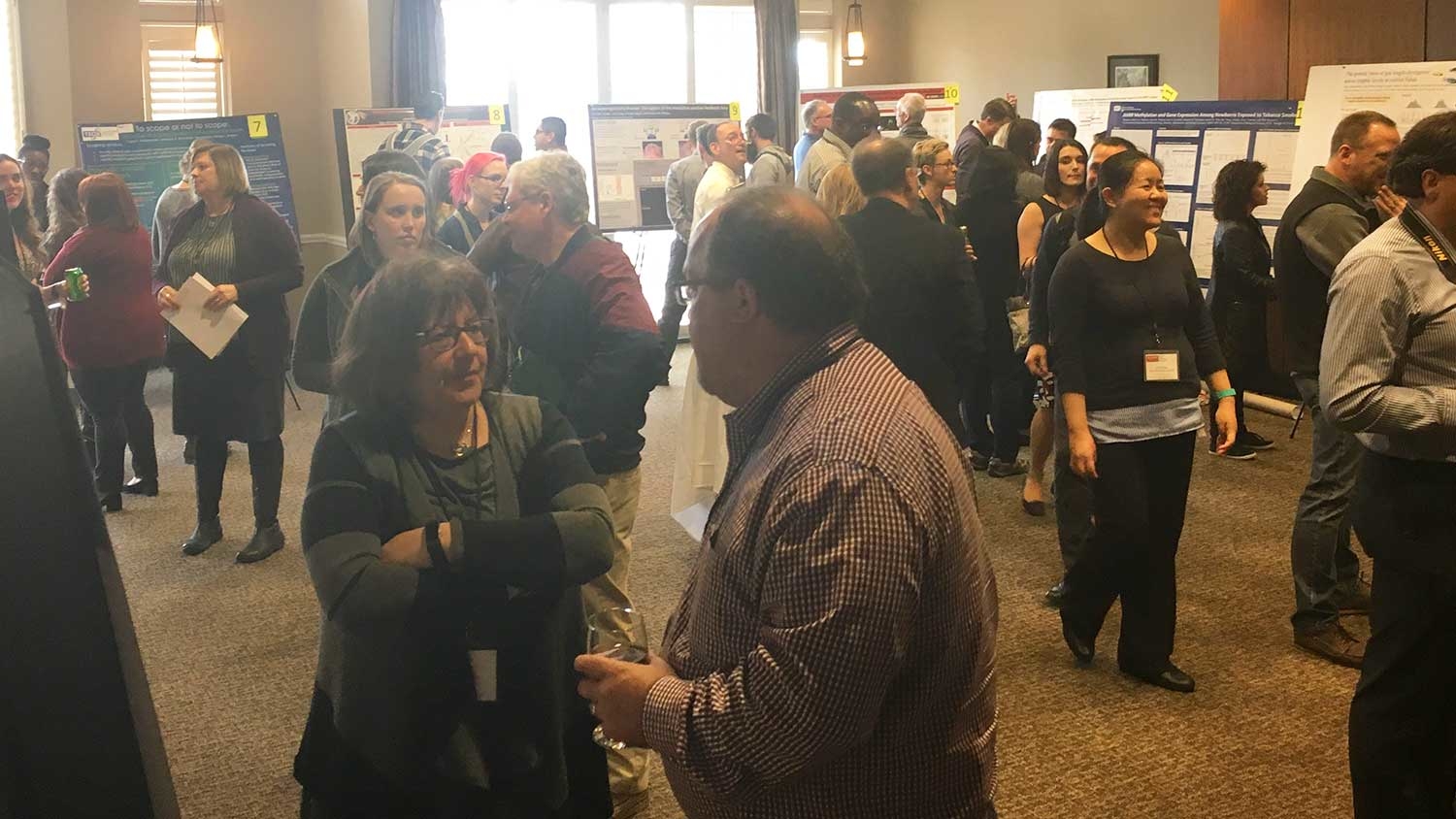Researchers Explore The Link Between Environment, Genes And Health

Why are some people more susceptible to certain diseases?
Scientists say it could have a lot to do with their genes and their environment.
NC State’s Center for Human Health and the Environment (CHHE) hosted its second annual symposium on Feb. 8 featuring many NC State researchers’ work in the field of epigenetics.
Epigenetics focuses on chemical reactions that turn genes “on” or “off.” These changes, which are thought to be caused by environmental factors, can impact health and make some people more susceptible to certain diseases.
“Epigenetics means ‘above genetics.’ Something above the genetics causes changes,” said NC State professor Randy Jirtle, who is one of the pioneering researchers in epigenetics.
Many studies have shown the epigenetic impacts of diet, stress, exposure to toxins and other factors. The health effects resulting from these changes can span generations through what’s called epigenetic inheritance.
NC State professor Emilie Rissman has been studying how exposure to endocrine-disrupting chemicals, such as bisphenol A (BPA), may affect the behavior of children whose parents were exposed to BPA. Similarly, NC State assistant professor Michael Cowley is researching how prenatal exposure to cadmium might impact health outcomes for a child as he or she grows.
“We really want to understand how these changes in genome functions have implications in health and disease,” Cowley said.
It’s not just environmental and lifestyle factors that cause epigenetic changes, according to symposium speaker Moshe Szyf. A professor at McGill University, Szyf has been studying the impact of social experiences on the epigenome.
“Environment is much bigger than chemicals,” he said.
As the field of epigenetic research continues to grow, so does the importance of translating these findings into actionable advice for the public.
“How do we get the public to understand the link between environmental exposures and health outcomes?” said Katlyn May, director of the Center’s community outreach and engagement efforts. “We need to increase environmental health literacy.”
This post was originally published in Sustainability News.